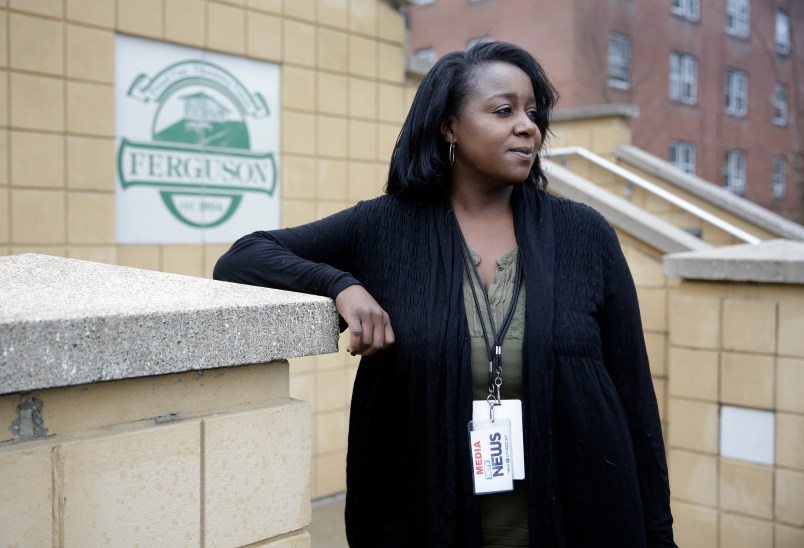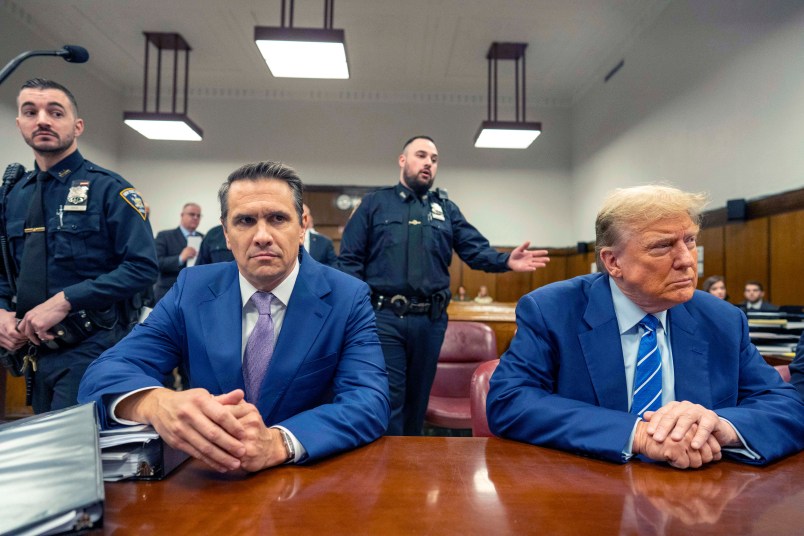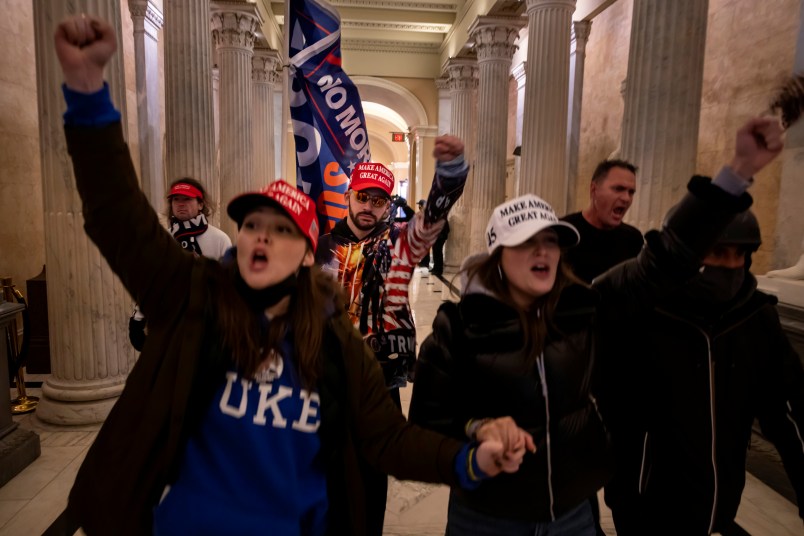FERGUSON, Mo. (AP) — A video journalist arrested while covering the unrest in Ferguson, Missouri, after Michael Brown was fatally shot last summer plans to fight the charges at trial.
St. Louis-based videographer Mary Moore said she wants her reputation, and her criminal record, cleared. Moore was among 13 people taken into custody during a demonstration outside Ferguson police headquarters in early October, and was charged with municipal violations.
Protests have continued since Brown, who was black and unarmed, was shot and killed Aug. 9 by then-Ferguson police officer Darren Wilson. Moore is one of an estimated two dozen journalists from around the world and among the hundreds of people who’ve been arrested in Ferguson.
Moore, whose videos have been used by The Associated Press, TV networks and other news organizations, is among the few journalists to actually go to court. She was charged with failure to comply, failure to disperse and resisting arrest. She said she was not part of the protest, but was simply documenting it on video.
Ferguson’s city attorney said Tuesday that Moore was “was participating in the protest and attempted to interfere … by locking arms with other protesters.”
“There was no resisting,” Moore said Monday in a phone interview. “I’m not an idiot.”
Moore’s case was set for trial in late June at a brief hearing Tuesday morning in Ferguson’s municipal court — the same venue singled out in a withering U.S. Department of Justice report that found the St. Louis suburb operated a profit-driven system that heightened tensions among black residents for years before Brown’s death.
The Missouri Supreme Court appointed a state appeals court judge to hear cases in Ferguson’s courtroom following the ouster of the private-practice attorney who previously presided there. Moore said she is considering whether to seek a change of venue to St. Louis County Circuit Court.
The San Francisco-based Freedom of the Press Foundation tracked 19 journalist arrests in August — including two at a McDonald’s just days after Brown’s death — one in September, two in October and two in November. Trevor Timm, executive director of the foundation, said charges were not filed in most cases.
Missouri’s online court reporting system does not show state charges against any of the arrested journalists, but Ferguson city charges would not appear there. A Ferguson spokesman did not return messages seeking comment.
Timm said there are ample witnesses, along with plenty of video evidence, showing that most of the journalists arrested in Ferguson were simply trying to do their jobs.
“The police were acting on a hair-trigger and weren’t respecting the First Amendment rights of both journalists and protesters,” Timm said.
Police leaders did not respond to interview requests but have defended the arrests. Missouri State Highway Patrol Capt. Ron Johnson, in charge of security in Ferguson in the weeks after the shooting, said some journalists were repeatedly asked to return to sidewalks or safe areas for their own well-being. He said it was often difficult to discern media from protesters.
Forty-eight media organizations, including the AP, sent a letter to Ferguson law enforcement officials in August, criticizing treatment of reporters.
The only recent event that spurred more arrests of journalists was the Occupy movement in 2011 and 2012. Josh Stearns, director of journalism and sustainability for the New Jersey-based Geraldine R. Dodge Foundation, reported that more than 90 journalists were arrested in 12 U.S. cities during Occupy protests.
After her arrest, Moore and 12 protesters were taken to a jail in nearby St. Ann, forced to change into orange jail jumpsuits and kept overnight in a single cell with a few other people arrested for unrelated reasons, she said.
Moore, who’s in her early 40s but declined to give her exact age, said the arrest has harmed her reputation and has been a source of stress.
“There is nothing worse than being accused of something when you know you don’t represent that,” she said. “I take pride in being a civic person. When you say I did these things and you know better, that’s a problem for me.”
___
Follow Alan Scher Zagier on Twitter at http://twitter.com/azagier
Copyright 2015 The Associated Press. All rights reserved. This material may not be published, broadcast, rewritten or redistributed.









